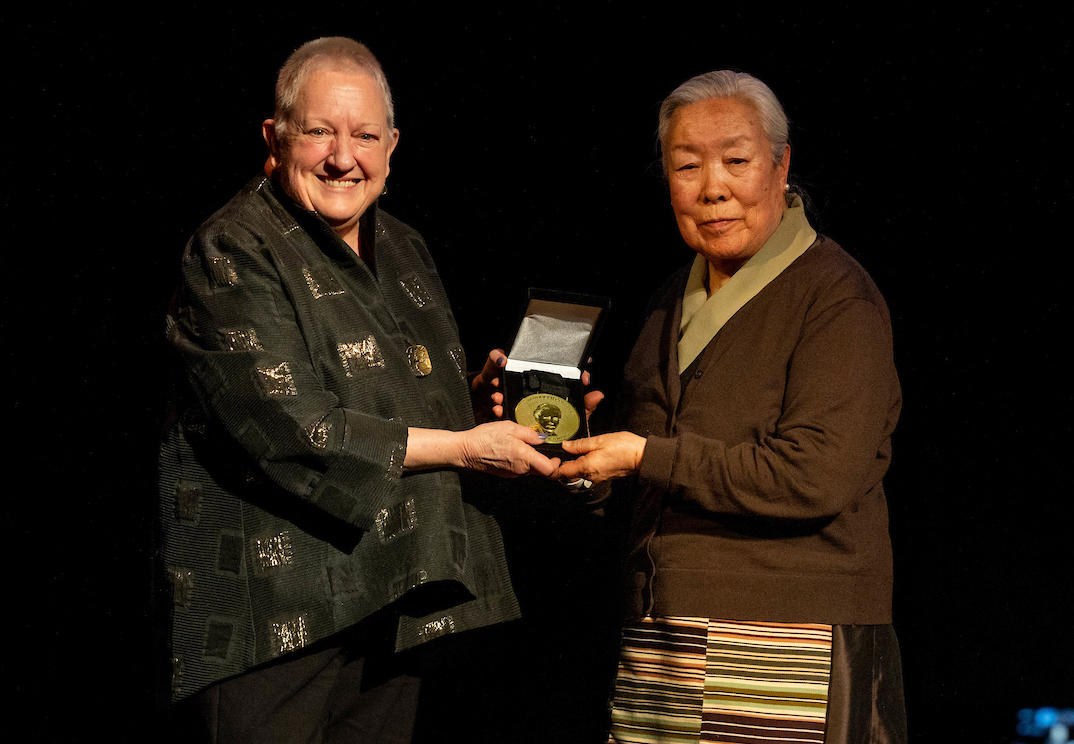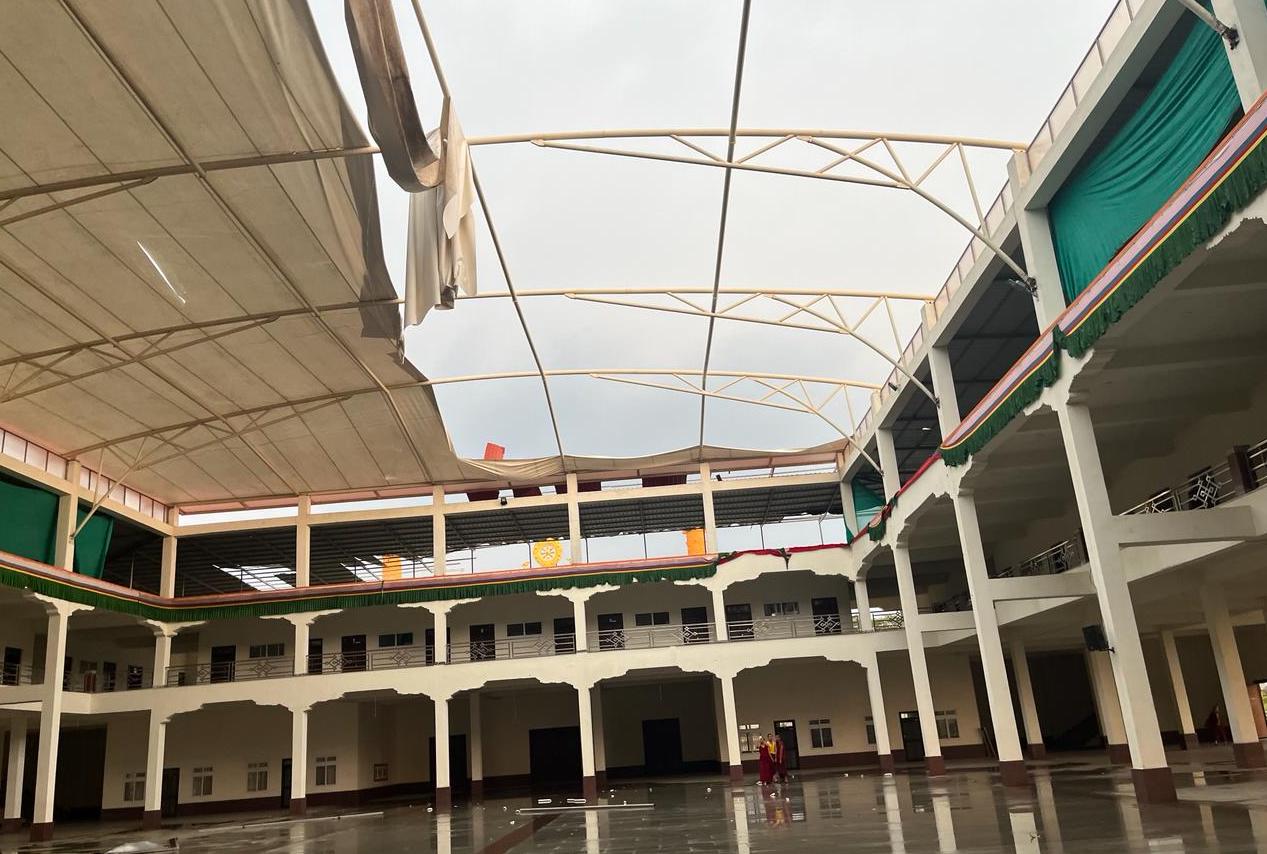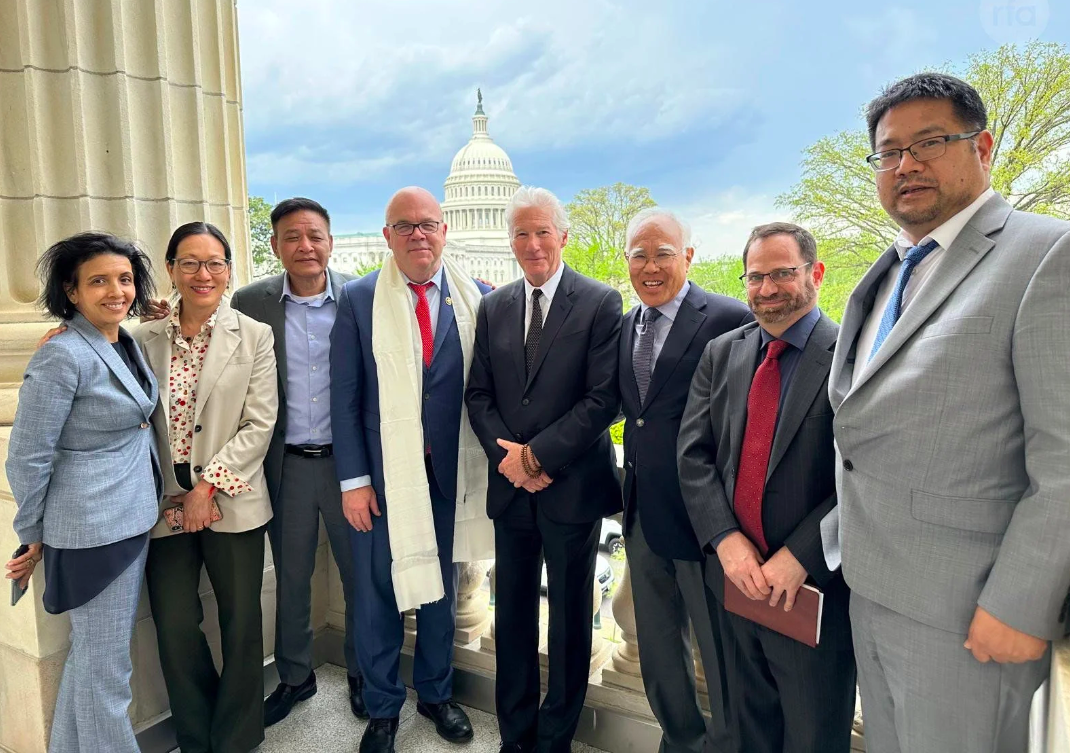 Dharamsala, April 17 – The 10 March procession since the last few years transformed from a violent outburst against China and UN to peaceful march along the streets with a prayer for sentient beings. This shift in display of patriotism was marked by the efforts of the exile Tibetan administration of creating a ‘conducive atmosphere for dialogue with China’.
Dharamsala, April 17 – The 10 March procession since the last few years transformed from a violent outburst against China and UN to peaceful march along the streets with a prayer for sentient beings. This shift in display of patriotism was marked by the efforts of the exile Tibetan administration of creating a ‘conducive atmosphere for dialogue with China’.
The Kashag hoped that the third delegation leave for China this year if its request is responded positively by Beijing. The Assembly of the Tibetan People’s Deputies passed a resolution to review the middle path policy if there is no positive response to the Kashag’s attempts of facing Chinese leadership on the other side of the table.
The Tibetan Youth Congress began an indefinite hunger strike in front of the UN building.
The political scenario of Tibet is confusing enough. Tibetnet caught up with Pema Jungney, Chairperson of the Assembly of the Tibetan People’s Deputies.
TN – Do you see any breakthrough in the Dharamsala Beijing relationship going by the indication of the Kashag in its March 10 address towards a possible dispatch of a third delegation visiting China, and this time not to create conducive atmosphere as usual but to discuss the beginning of actual negotiations?
CHAIRMAN – Yes, I do hope for the same.
TN – Beijing released eminent prisoners like Ngawang Choephel, Ngawang Sangdrol, Takna Jigme Sangpo, and Phuntsok Nyidrol. What has Dharamsala which says it gives a high priority to creating conducive atmosphere for talks with Beijing done?
CHAIRMAN – Dharamsala not only speak out of creating a conducive atmosphere, but has been practically doing everything in this regard. The Tibetan administration has even urged the Tibetan people and Tibet Support Groups to help create a conducive atmosphere for dialogue. The Tibetan administration, the parliament and the public are cautious of its importance, and hence, refrain from even using confrontational language. I believe that we have left no stones unturned to move forward in the direction of building mutual trust and confidence. But I must make it amply clear here that we are not going to silently watch the deteriorating situations in Tibet. We are and will definitely raise our concerns and apprehensions whenever any negative development takes place in Tibet.
On the other hand, the Tibetan parliament as well as the people have a feeling that the Chinese side is not doing enough for creating atmosphere conducive for dialogue. A few steps taken from the Chinese side such as the release of few political prisoners are, it seems, taken under some international pressure. And at the same time, sentencing to death of Tulku Tenzin Delek and imprisonment of other Tibetans without a fair trial are very much against building the right atmosphere for dialogue. So, we have to watch carefully and analyse whether some positive developments from the Chinese side are actually undertaken for creating the right atmosphere or just wade away the international pressure. At the end of the day, I am confident to declare that we have maintained our sincerity and have done whatever we can to build a conducive atmosphere for negotiation.
TN – Your Assembly earlier gave a go ahead to the middle path policy. Now it has passed a resolution during the seventh session to review the Middle Way Approach if there is no significant response from China before the ninth session next year, where do you stand between the two?
CHAIRMAN – It is not the question of the Middle-way approach receiving the full support of the Assembly. Since there was no response forthcoming from China and at the same time, various opinions and views were expressed in the Tibetan community, His Holiness the Dalai Lama had, in his statement of 10th March 1995, called for referendum to decide the future course of the Tibetan struggle for freedom. From 1995 to 1997, we had prepared for the process of referendum and sought the views of the Tibetan people. About 64% of the Tibetan people confirmed that they do not want referendum on this issue and expressed that whatever His Holiness the Dalai Lama decides considering the international situation, will be acceptable to them. Considering this decision of the majority of the Tibetan people, the Assembly in September 1997 unanimously decided to accept His Holiness’ approach and withhold the referendum. And in the 10th March statement of 1998, His Holiness extended his gratitude to the Tibetan people for expressing their full trust and confidence in him and declared that he still stands for the Middle-way approach for resolving the Tibet issue. And even today, there is no change in His Holiness’ approach. In the future, if His Holiness does not get a response from the Chinese [leadership] and decides to take a different approach, we believe that His Holiness has every right to do so since majority of the Tibetan people had given him this authority to decide the future course of action for resolving the Tibet issue. As I said in the Assembly earlier, the Assembly at the moment is not in a position to decide any thing on this issue. This is because, considering the majority of people’s decision, the Assembly itself had passed a unanimous resolution giving His Holiness the authority to decide for the Tibetan people. It is now His Holiness who alone can make a decision in this regard. If no response is forthcoming from China to his proposals, His Holiness may ask the Tibetans to determine the future goal for Tibet through a referendum or His Holiness may ask the Assembly to review its earlier resolution.
Without His Holiness’ instruction, there is no way any change in the Middle-way approach can happen. The Assembly cannot make any change at the moment, as it has to abide by its earlier resolution.
TN – TYC, the largest NGO, sits on an indefinite hunger strike, TWA on April 7 demonstrated for release of Tulku Tenzin Delek, would you see these acts as a hindrance to the Kashag’s efforts of creating ground for talks with Beijing?
CHAIRMAN – No, I don’t believe that these campaign or activities will hinder our effort for creating a conducive atmosphere for dialogue. Sentencing of Tulku Tenzin Delek to death is known all over the world. Now we are urging the Chinese authorities not to execute Tulku Tenzin Delek. This by no means will jeopardize the conducive atmosphere. Anyhow, the hunger strike in New York and the demonstration in Geneva haven’t been organised by the Kashag. The Kashag cannot say Yes or No to the activities and campaigns organised by any NGO. Any NGO has a right to decide its plan of action. The administration cannot judge their activities in terms of hindering the process of creating conducive atmosphere for negotiation.
TN – But earlier the Kashag had issued an appeal to the TSGs.
CHAIRMAN – Yes, that is an appeal, not an order. And an appeal can be made once, not repeated again and again.
As we hope for the visit of the third delegation soon, it is possible that the Chinese may blame us. But much will depend on the Chinese sincerity and will. If the Chinese leadership is sincere and willing to negotiate, nothing will jeopardize the conducive atmosphere. But if they are not sincere and willing, they can blame on anything.
TN – During the seventh session, the voting for induction of a new Kalon marred the Kashag’s expansion. Some say democracy was at its best, others say personal rivalry among the deputies was at display. What is your take?
CHAIRMAN – Any deputy can object to the Kashag’s nomination. It is the deputy’s right. But his/her objection should be based on factual and valid reasons. Otherwise, this will harm the democratic processes. In the democratic system, the objection should not be based on the personal life. It should be based on whether he/she has committed any harm to the public institution or not. Such a personal criticism, would have faced the court of law if it had been made outside of the Assembly. This trend is dangerous. The reasons for the objection are not valid because these are not based on nominee’s public life.
TN – Is unemployment today within the Tibetan community a serious issue?
CHAIRMAN – Unemployment among the youth is a problem being faced by not only the Tibetan people but also by many other communities. In other communities, this problem has been there some twenty or thirty years ago. In the 1990s, when I was not a chairman of the Assembly, I had then raised this issue. I had then said that the Tibetan community might face this problem in the future and the Kashag should take steps to mitigate this problem. The Kashag as well as an individual youth should take steps. The Kashag may expand the scope of education. At the moment, after graduating from the school or college, the Tibetan youth opt either to join office work or become a teacher. Even during their school days, they have these only two career options in their mind. I think it is a time for the Kashag to take measures to expand career options of the graduating Tibetan youth. For this, they should be given education in different career oriented subjects right from their school days. And we have to think what kind of jobs we can create within our community, and accordingly, plan for imparting education and skills for future generations.
TN – One of the preconditions from Beijing for a dialogue is that the Dalai Lama should recognize Taiwan as an integral part of China. And this week Dharamsala received a delegation from Taiwan led by its Representative in Delhi. Don’t you think that Dharamsala’s warm reception to the Taiwanese delegation will jeopardize the conducive environment for the process of dialogue with the Chinese leadership?
CHAIRMAN – It is not representing the Taiwanese government. So, first of all, we need to acknowledge this fact. The [Taiwan Tibet] Exchange Foundation is a non-governmental organisation (NGO). And by pointing out that this [member] is associated with this government, I think, it should not be a valid reason to suspect it as a government agency. As the Tibetan NGOs in our community have a liberty to carry out their activities, I believe that the NGOs in Taiwan also have this liberty. The Central Tibetan Administration should not take it seriously; and there is nothing for the Chinese government to treat it so.
The visit of the Foundation’s delegation (to Dharamsala) will, therefore, in no way hinder the process of creating atmosphere conducive for dialogue. As an NGO, it is interested only in cultural exchanges and humanitarian assistance, and nothing more.
Interviewed on 9 April, 2004









